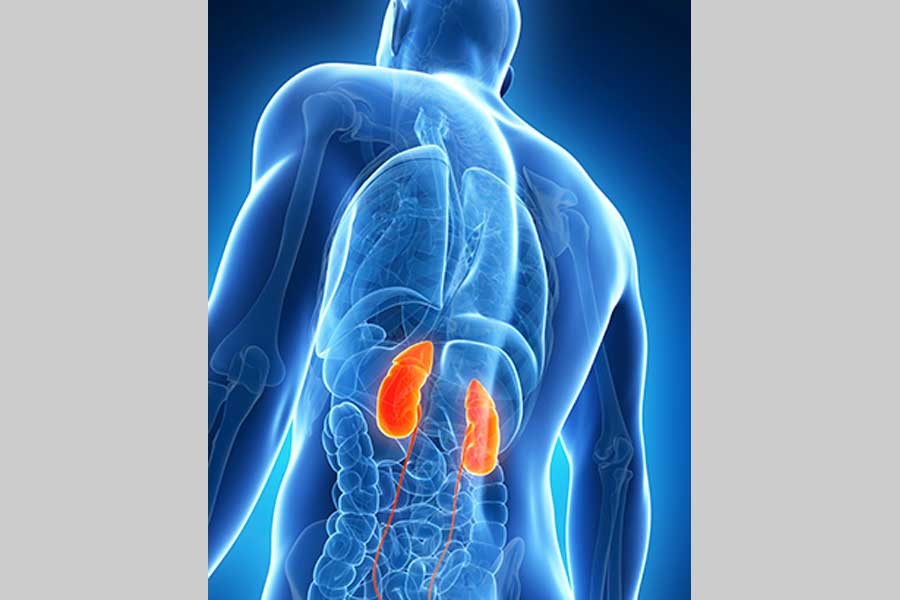Experts at a conference on Saturday stressed the need for creating public awareness over donation of kidney and other organs as 54 kidney patients die on average every day just due to scarcity of donors, reports UNB.
The imams (clerics) of mosques and teachers of schools can play a significant role in motivating people over kidney donation after death, they said while addressing the inaugural ceremony of the 2nd Bangladesh-Korea Conference on Deceased Donor Organ Transplantation, 2020.
Kidney Foundation, Bangladesh and Society of Organ Transplantation, Bangladesh in cooperation with Korea University Anam Hospital and Korean Society of Organ Transplant arranged the two-day conference at the Convention Hall of Kidney Foundation in the capital's Mirpur area.
“In Bangladesh, 54 kidney patients die due to the scarcity of kidney donors every day…If we can start deceased donors’ transplantation, we can save more and more lives,” said Prof Harunur Rashid, the founder president of the Kidney Foundation.
On average, 20 people die every day while waiting for a donor in the USA, and 14 people in Europe, he said.
Noting that organ transplantation is the best form of treatment for patients with organ failure, he said, “A dead person can save eight lives by donating two kidneys, one liver, one heart, two lungs, one pancreas and part of intestine.”
Prof Harun, also the president of Society of Organ Transplantation, Bangladesh, said some 10,000-12,000 people die in road accidents every year in the country who can be the suitable for donation of the organs if relatives agree to donate kidneys.
He said some 20 million people are suffering from kidney-related diseases in the country and some 40,000 people develop kidney failure every year in Bangladesh.
Prof Harun said some 20-30 per cent of kidneys are collected from living donors, while 70-80 per cent from deceased donors.
Noting that the source of deceased organ donors is intensive care units (ICUs), Prof Harun said there are nearly 50 ICUs, and some 500 patients are kept in the ICUs every day in the country.
“We can at least save 5-6 lives (of kidney patients) a day, if the ICU patients are declared death after their brain death and their kidneys can be collected by convincing their close relatives,” he said adding that many Islamic scholars in the world and the OIC accepted the brain death as death.
Prof AK Azad Khan, President of Bangladesh Diabetic Association, put emphasis on engaging imams of mosques in the awareness campaign over deceased donor organ transplantation.
Addressing the function, Rasheda K Chowdhury, Executive Director of Campaign for Popular Education, echoed Prof Khan saying that it is very important to go to convince the religious leaders for raising awareness over kidney donation.
She also said it is needed to spread the message --one dead person can save several lives by donating organs—among the students by engaging in the school teachers in this campaign.
Rasheda K Chowdhury, also former caretaker government adviser, said an option can be put in all sorts of identity cards mentioning whether the card holder wants to donate organs after the death.
Dr Quazi Deen Mohammad, professor and director of National Institute of Neuroscience and Hospital, said the ultimate treatment of kidney patients is organ transplantation as the patients have to suffer a lot and spend huge money on dialysis.
He also said the Islamic Foundation can be engaged in the awareness campaign so that they can engage the imams in motivating people over kidney donation.
Dr Deen Mohammad, also the president of Bangladesh College Physicians and Surgeons, said the government enacted the Transplantation of Human Organs Act, 2018 to pave the way for organ donation.
“There was no law in the past. Now the law has been passed. It’s a major weapon for us (to work for motivating organ donation),” he said.
Prof M Muhibur Rahman, Secretary of Kidney Foundation, said the kidney patients mostly stop dialysis treatment within six months of starting it as it is very much costly.
Dr Shahidul Islam District Governor, Lion Clubs International districts 315A1, Bangladesh, and M Khairul Alam, District Governor, RID3281 Bangladesh, Rotary International also spoke on the occasion.


